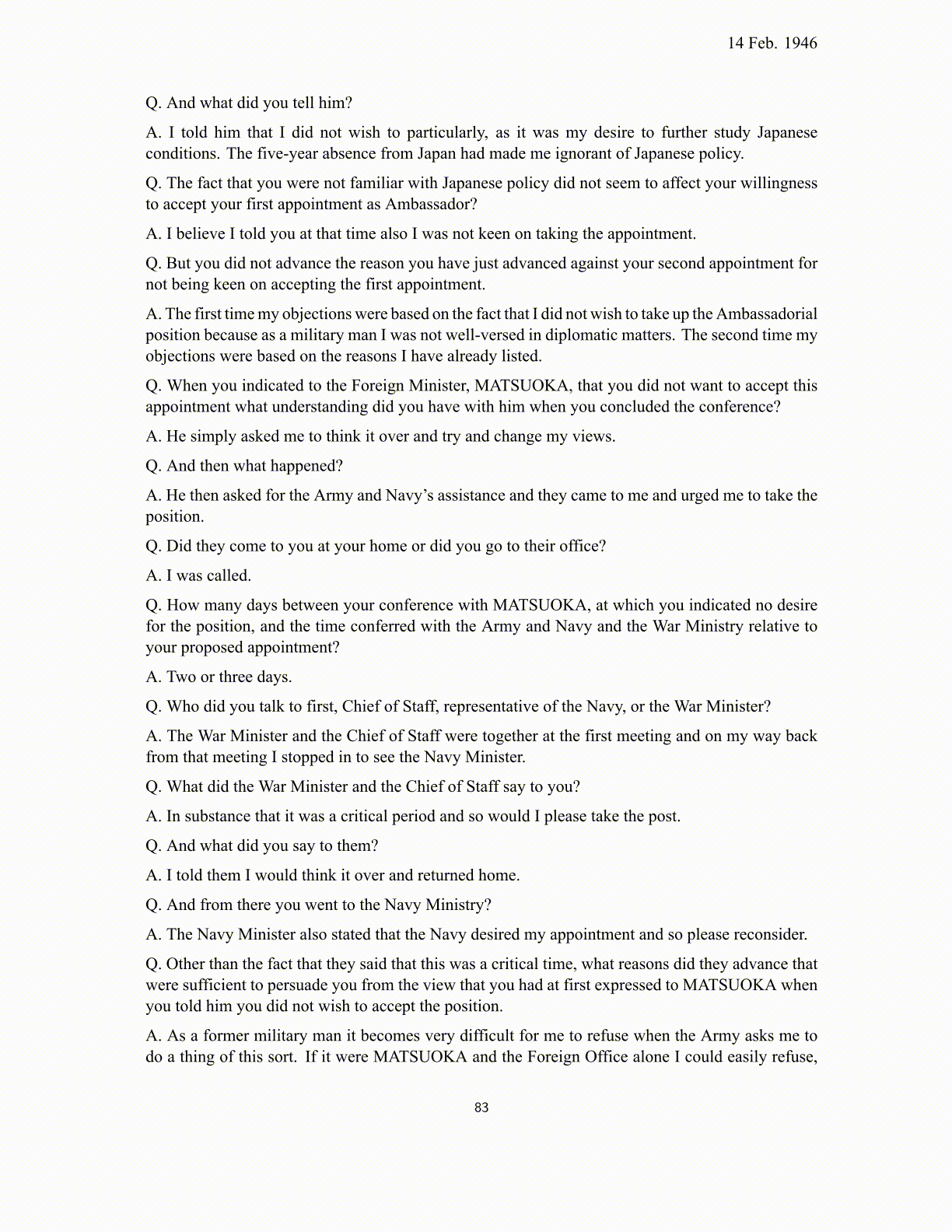
14 Feb. 1946 Q. And what did you tell him? A. I told him that I did not wish to particularly, as it was my desire to further study Japanese conditions. The five-year absence from Japan had made me ignorant of Japanese policy. Q. The fact that you were not familiar with Japanese policy did not seem to affect your willingness to accept your first appointment as Ambassador? A. I believe I told you at that time also I was not keen on taking the appointment. Q. But you did not advance the reason you have just advanced against your second appointment for not being keen on accepting the first appointment. A. The first time my objections were based on the fact that I did not wish to take up the Ambassadorial position because as a military man I was not well-versed in diplomatic matters. The second time my objections were based on the reasons I have already listed. Q. When you indicated to the Foreign Minister, MATSUOKA, that you did not want to accept this appointment what understanding did you have with him when you concluded the conference? A. He simply asked me to think it over and try and change my views. Q. And then what happened? A. He then asked for the Army and Navy’s assistance and they came to me and urged me to take the position. Q. Did they come to you at your home or did you go to their office? A. I was called. Q. How many days between your conference with MATSUOKA, at which you indicated no desire for the position, and the time conferred with the Army and Navy and the War Ministry relative to your proposed appointment? A. Two or three days. Q. Who did you talk to first, Chief of Staff, representative of the Navy, or the War Minister? A. The War Minister and the Chief of Staff were together at the first meeting and on my way back from that meeting I stopped in to see the Navy Minister. Q. What did the War Minister and the Chief of Staff say to you? A. In substance that it was a critical period and so would I please take the post. Q. And what did you say to them? A. I told them I would think it over and returned home. Q. And from there you went to the Navy Ministry? A. The Navy Minister also stated that the Navy desired my appointment and so please reconsider. Q. Other than the fact that they said that this was a critical time, what reasons did they advance that were sufficient to persuade you from the view that you had at first expressed to MATSUOKA when you told him you did not wish to accept the position. A. As a former military man it becomes very difficult for me to refuse when the Army asks me to do a thing of this sort. If it were MATSUOKA and the Foreign Office alone I could easily refuse, 83